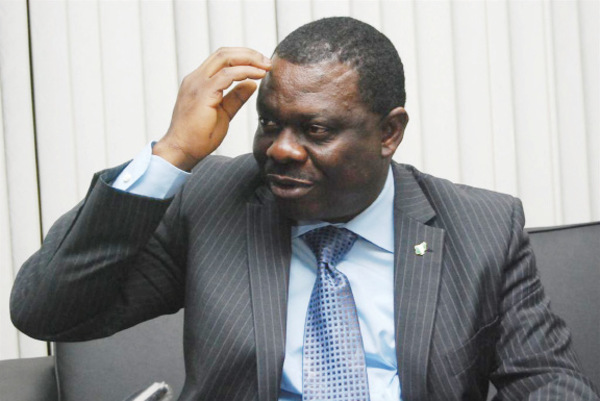A statement issued on February 24 by Terngu Obed, director of media in Mike Aondoakaa’s campaign organisation, said the supreme court did not bar the senior advocate of Nigeria (SAN) from holding public office.
Some media platforms had published news stories, claiming Aondoakaa was barred by the apex court from holding public positions.
But Obed said detractors of the former justice minister’s ambition of becoming the next governor of Benue state were the ones peddling lies to deter his fast rising political base.
“This is nothing other than people who are afraid of my popularity or reasons best known to them. Or maybe they didn’t read the supreme court Judgement,” he told The Nation.
Aondoakaa was appointed attorney-general and minister of justice by late president Umaru Musa Yar’Adua on July 26, 2007.
In 2010, he was removed in controversial circumstances by Goodluck Jonathan, the acting president at the time.
BACKGROUND
Following the emergence of Bassey Obot as the substantive candidate to represent Uyo federal constituency in the primary election conducted by the Peoples Democratic Party (PDP) in Akwa Ibom in 2006, his name was substituted with that of Bassey Etim even after Obot had been duly presented to the Independent National Electoral Commission (INEC) as the PDP candidate.
On December 12, 2007, in a case with the reference number CA/C/45/2007, the court of appeal in Calabar delivered judgment in favour of Obot, ordering the president of the court of appeal to set up a new tribunal to adjudicate over Obot’s petition in Uyo.
After a petition from Etim, Aondoakaa, in his capacity as the AGF, wrote a letter to the president of the court of appeal, advising him not to comply with the decision of the lower court to constitute a new panel of judges to hear the matter.
Against the AGF’s advice, the president of the court constituted a new panel and gave judgment on April 18, 2008 that Obot be sworn into the house of representatives as the member representing Uyo federal constituency. In addition to this ruling, the court also dismissed Etim’s appeal with an order that INEC should issue certificate of return to Obot.
But in a twist, the former AGF wrote to Maurice Iwu, chairman of INEC at the time, asking him not to obey the judgment of the court of appeal, which he described as “obvious desecration of the institution of the judiciary.”
He also wrote to the speaker of the house of representatives recommending that the judgment of the appeal court be disregarded but “allow the status quo ante to remain until the last word is heard from the supreme court.”
As a result, Obot was not issued with the certificate of return by INEC nor sworn into the green chamber. So, Obot sued Aondoakaa in 2009 in his official capacity as AGF and personally as the 2nd respondent.
VERIFYING THE SUPREME COURT RULING
The federal high court in Calabar, Cross River state capital, granted Obot’s request restraining the 2nd defendant from further and/or continued occupation of the office of the 1st defendant and/or the discharge of the functions of the said office. The court further restrained Aondoakaa from holding any public office.
But Aondoakaa’s lawyer, in arguing his case, submitted that the learned trial judge restrained the appellant from holding public office instead of limiting himself to the prayer restraining him from holding office as the attorney-general.
Copies of a judgement obtained by TheCable, dated December 10, 2021, and delivered by Kudirat Kekere-Ekun, justice of the supreme court, the apex court affirmed the judgement of the federal high court in Calabar that the former AGF “ought not to be entrusted with any other public office at all.”
“It was indeed highly reprehensible for the chief law officer of the federation to counsel disobedience to any judgement at all, talk less of a judgement from which there is no further right of appeal,” the judgement reads.
“I am in complete agreement with the learned trial judge, as affirmed by the court below that having regard to the conduct of the appellant while occupying the sacred office of chief law officer of the federation, he ought not to be entrusted with any other public office at all.”
“I agree with the court below that the order made, though not specifically asked for, is a consequential order naturally flowing from the resolution of the questions for determination in the 1st respondent’s favour and the grant of his reliefs. As held in Amaechi Vs INEC (supra) the court has a duty to use its powers to do justice in the case where an attempt to subvert the administration of justice has occurred.”
VERDICT
The supreme court affirmed the judgement that Aondoakaa, the former AGF, be restrained from holding any public office in Nigeria.





